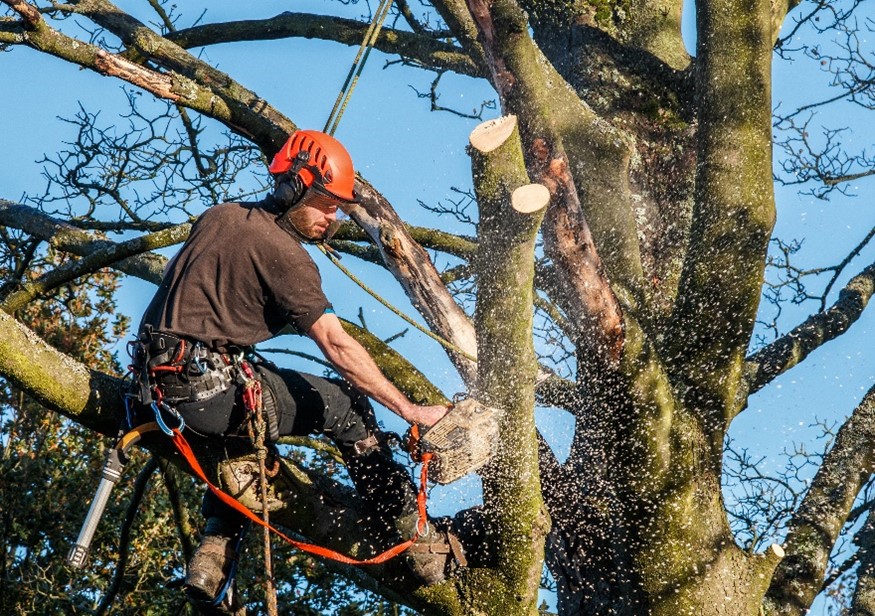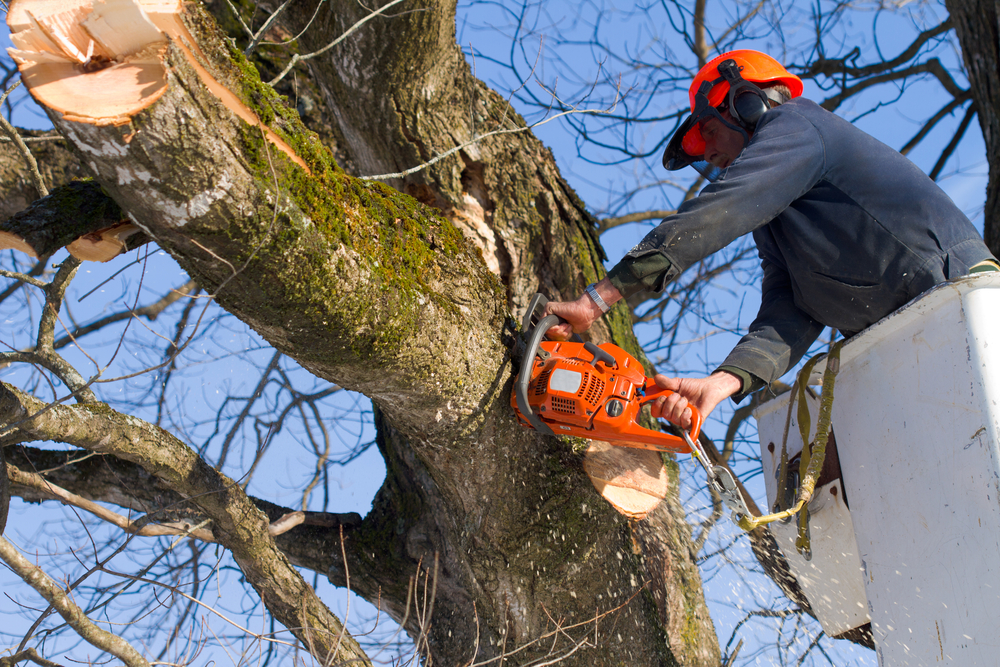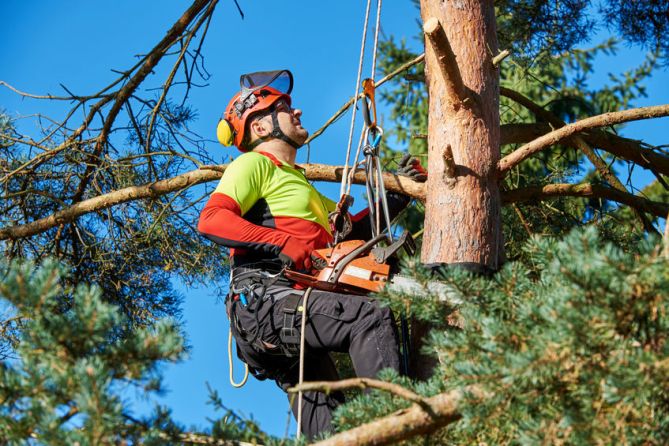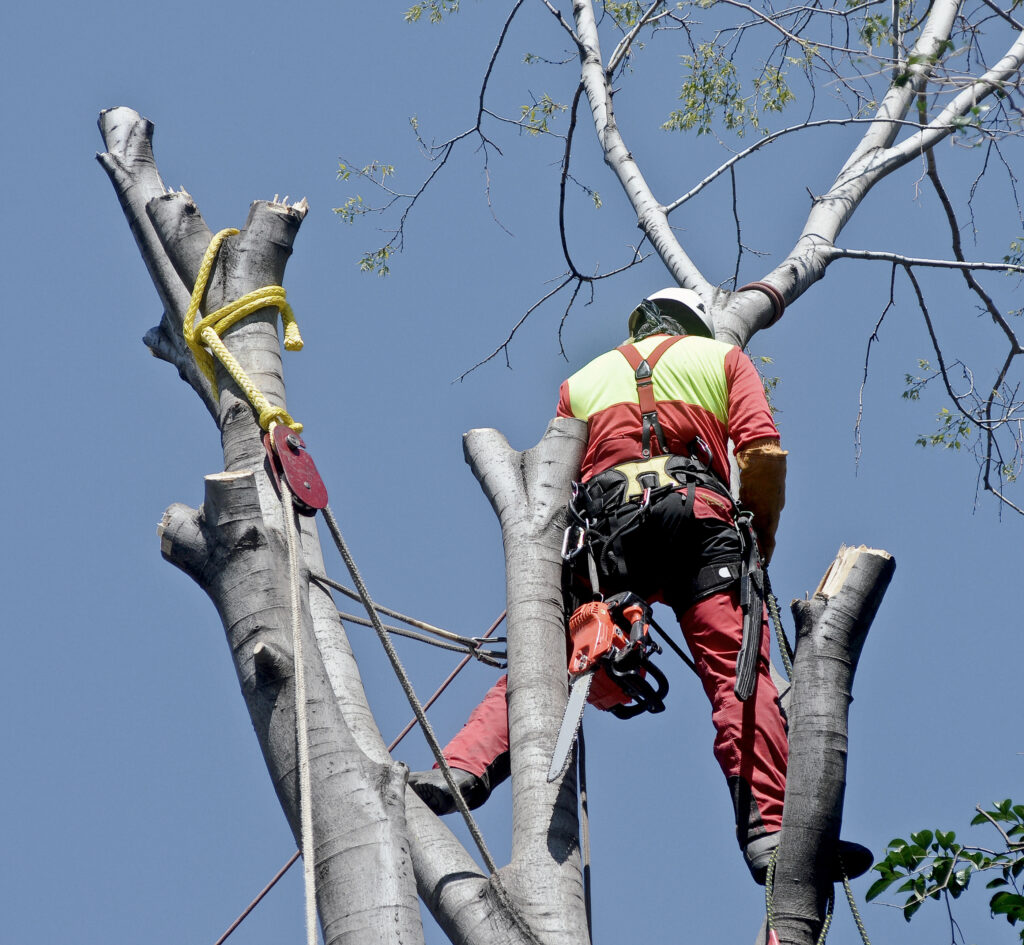Exciting News for Tree Service Contractors: New C-49 License Category Available
Starting January 1, 2024, the California Contractors State License Board (CSLB) is set to accept applications for the brand-new C-49 – Tree and Palm Contractor classification which is different from a C-61/D-49 license. This development is a significant step forward in the field of tree service contracting and helps to enhance safety and health standards within the California tree service workforce. The move reflects a commitment to ensuring that tree service contractors are well-versed in the essential protocols that contribute to a safe working environment.

This news is particularly noteworthy for individuals and businesses engaged in tree service operations. The introduction of the C-49 classification underscores the importance of adhering to established health and safety guidelines in the industry as the work is not easy and is fairly dangerous. Aspiring tree and palm contractors can now look forward to a comprehensive examination process that assesses their knowledge and proficiency in these critical areas.
The Wild West of the California Tree Service Industry
All your neighbors do it, and you see it everywhere you look – people hiring unlicensed individuals to do tree work. You’ve probably heard the saying, “there is a high price to the low bid” in the trades. Well, it turns out there’s more to it than just a catchy phrase. If you’re a homeowner or property manager and you hire a contractor on the cheap, there’s a potential catch – you might end up responsible if that contractor or their employee gets hurt on your property. California Labor Code Section 2750.5. Several factors determine the ultimate liability, but I imagine this fact situation will make several of you reading this think twice before you hire your next tree trimmer.
The critical paragraph of Section 2750.5, effectively states that if you hire someone to perform any “function or activity” for which a Contractors License is required by the Contractors State License Law, the employer must prove or establish that the employed person or worker(s) hold a “valid” license legally to perform required that “function or activity” “as a condition of having independent contractor status.” If they don’t hold that license, they are effectively an employee of the hiring individual, in this case, the homeowner.

Who is a Tree Contractor in California?
According to California Business and Professions Code Section 7026.1(a)(4), a contractor is basically someone who does tree-related work like removing trees, pruning them, taking out stumps, or dealing with tree and limb cabling or guying. But it doesn’t count as someone who works as a nurseryperson and, as part of their regular job, does small things like pruning or guying planted trees. Also, a regular gardener isn’t considered a contractor if they’re just doing basic tree pruning for trees under 15 feet tall after they’ve been planted. So, in simpler terms, if you’re not doing big tree work, you might not fall under the contractor category according to this rule.
When are Gardeners Supposed to be Licensed?
Alright, let’s break this down: If a gardener is trimming trees that are 15 feet or taller, they’re considered a contractor, whether they have a license or not. On the flip side, a licensed nurseryperson, who has the know-how backed by a California nursery license, doesn’t have the same height limit. They can work on any height tree, and their tasks even cover things like pruning and guying planted trees.

When you look closely at the rules, it’s clear that licensed nurserypersons and non-licensed gardeners have different scopes of work. Licensed nurserypersons have a broader range and can handle tasks on trees of any height, including stuff like pruning and guying. Meanwhile, a gardener is good to go for trees under 15 feet tall when it comes to pruning. So, the key difference lies in the height of the trees and the licensing status. The biggest challenge for homeowners is that most gardeners do not know the rules and unknowingly expose their clients to liability.
Tree Trimmer Falls Off Tall Ladder and Homeowner is Liable – Jones v. Sorenson 25 Cal. App. 5th 933 (2018)
In this California case, Mr. Miranda, a gardener of long-standing, received compensation from Ms. Sorenson (a property owner) to undertake the trimming and pruning of trees on her property. Given Miranda’s limited proficiency in handling tall trees, he enlisted the services of Ms. Jones, an unlicensed laborer familiar with past collaborations with Miranda, including engagements on the Sorenson property. In the course of her duties, guided by directives from both Sorenson and subsequently Miranda, Jones experienced a significant fall resulting in severe injuries. Jones contended that Miranda’s negligence, particularly in the manner he manipulated or failed to secure the ladder, led to the incident.

Complicating matters, Miranda, lacking the requisite licensure to engage in tree trimming exceeding 15 feet, prompted Jones to pursue legal action against the property owner, Sorenson. Jones’ legal stance invoked the principle of respondeat superior, denoting vicarious liability. Essentially, due to Miranda’s unlicensed status, Sorenson assumed a de facto employer role, pursuant to California Labor Code 2750 et seq., thereby incurring vicarious responsibility for Miranda’s lapses and consequential injuries sustained by Jones.
The California Supreme Court stated eloquently: “It is doubtful the average homeowner realizes tree trimming can require a contractor’s license” (Fernandez v. Lawson, 2003) 31 Cal.4th 31, 37. This subtle yet crucial reality underscores the necessity for homeowners to exercise awareness. It is not an overstatement to propose that a significant majority of gardeners, perhaps as high as 90%, are unaware of this regulatory constraint on their unlicensed undertakings. It would be prudent for homeowners to broach this topic during interactions with their gardeners to ensure compliance with these licensing prerequisites.
California Homeowners have Burden of Proof
Regrettably, in California, homeowners are tasked with the onus of verifying the proper licensing of contractors. The California Labor Code establishes a rebuttable presumption that an individual lacking the requisite license for a task demanding one is construed as an employee, rather than an independent contractor. Complicating matters, unlicensed contractors are barred from obtaining workers’ compensation insurance. Consequently, any employees working under them effectively become uninsured.
In essence, when a homeowner engages an unlicensed individual for work on their property, particularly when that work necessitates a license, a precarious situation unfolds. The homeowner potentially assumes responsibility for any injuries sustained by the unlicensed workers or employees, given the absence of workers’ compensation coverage. It’s a nuanced challenge in the realm of home projects, underscoring the need for meticulous scrutiny when selecting contractors in compliance with licensing regulations.
Always Protect Yourself by Simply Asking Questions
Mitigating potential risks requires California homeowners and commercial property owners to adopt a proactive approach by requesting contractors to furnish both their licenses and insurance certificates. This simple yet crucial step serves as a preemptive measure against exposure to liabilities. For property owners overseeing rental properties under the management of property managers or management companies, this due diligence should be ingrained as standard practice.

In the context of property management, the automatic verification of licenses and insurance becomes paramount. If a property management entity resorts to hiring unlicensed workers as a cost-cutting measure, it signals a potential red flag. In such instances, homeowners may need to reconsider their partnership and explore alternatives that prioritize compliance with legal standards.
For those seeking a dependable and law-abiding property management partner, Esquire Property Management Group stands as a testament to unwavering adherence to legal protocols. It is crucial to emphasize that the allure of a low bid often carries an unseen but substantial cost. Therefore, homeowners are encouraged to prioritize the quality and legality of services, underscoring the significance of selecting partners who align with ethical and legal standards.
David currently is the broker/owner of several real estate related businesses which manage and maintain 300+ client properties on the San Francisco Peninsula.
Trust, transparency, and performance guarantees are the foundation of these businesses. David challenges anyone to find a PM professional that offers services similar - extensive education, customer service, and performance guarantees.
David also provides consulting for his clients on property development feasibility, construction, and complex real estate transactions.
David has authored a published law review article, three real estate books, and over 150+ real estate blog articles.
- “Wildfires, Insurance & Mortgages: Will Your Home Survive the Financial Aftermath?” - March 3, 2025
- What’s Driving California’s Commercial Real Estate Shakeup? - February 27, 2025
- Critical Issues in Triple Net Leases Investors Should Know - February 14, 2025

